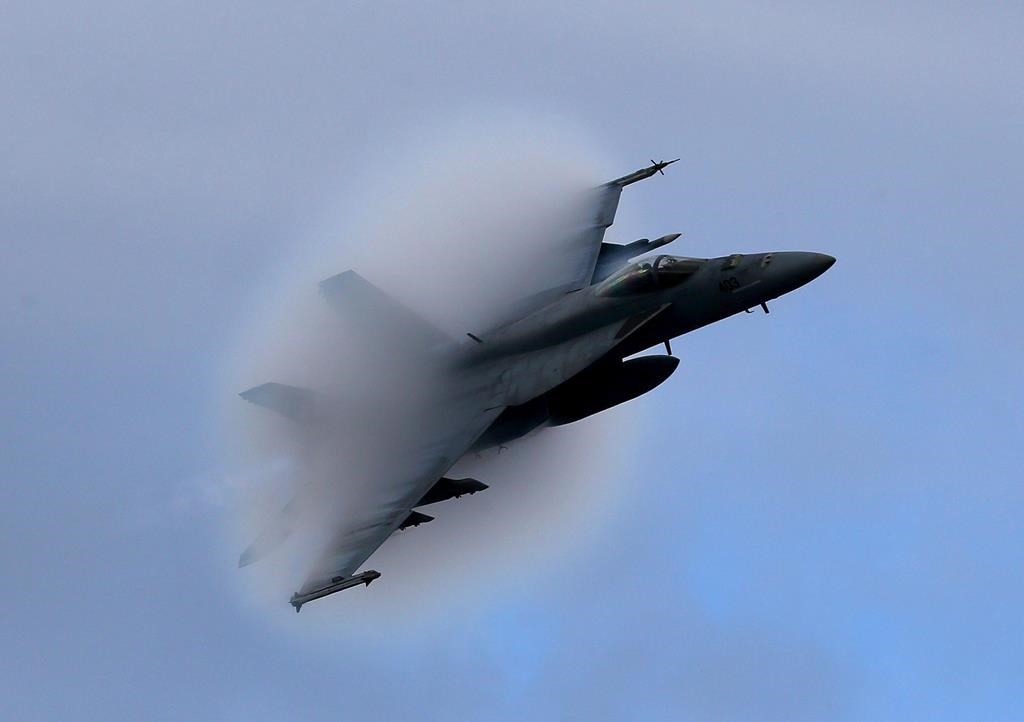Gagging Revelations
"Given the subject-matter and commercial sensitivities associated with the work, it was deemed to be an appropriate and necessary procedure."
"In this case, a non-disclosure is principally used as a reminder to ensure sensitive and corporate information is protected in the long term."
Daniel Le Bouthillier, spokesman, National Defence, Ottawa
"I can't recall anyone in any of my project teams having to do that."
"Any of our people, I trust them to use their judgement."
"Anyone reading [Lt.-Gen. Michael] Hood's comments would come to the conclusion that there is no capability gap."
Alan Williams, former assistant deputy minister of materiel (2000--2005), National Defence, Ottawa

Alternatives to the F-35 (pictured) are the Boeing Super Hornet or Eurofighter’s Typhoon. Photo: Lockheed-Martin
The decision mandated by the Liberal government of Prime Minister Justin Trudeau to force National Defence procurement officials to a lifetime of secrecy represented a heavy-handedness to maintain a tight leash to ensure that no government whiff of malfeasance be broadcast. Which led to 235 officials having to sign a "life-time" non-disclosure agreement just as the government is involved in negotiations with American aerospace giant Boeing Co. for an "interim" purchase of 18 Super Hornets to beef up Canada's aging jet fleet.
Purchases of such magnitude require an open competition for bidding to determine which plane and which producer most accurately responds to Canada's needs. For all intents and purposes general agreement is that Lockheed-Martin's F-35 is that plane, a conclusion reached by all of Canada's NATO partners, as well as other countries looking for a technologically up-to-date, state-of-the-art warplane.
The issue revolves around the Liberal pledge during the 2015 election campaign that it would scrap the previous Conservative government's plan to buy F-35 Lightning II warplanes produced by Lockheed-Martin, despite that Canada has benefited over the years under an agreement to purchase, with Lockheed-Martin establishing the production of parts for the F-35 produced in Canada, ensuring jobs and production came with that agreement to purchase. Trudeau is intent on bypassing or reversing as many of the previous government's decision-making as he can.
The Trudeau government has insisted there is a critical shortfall of dependable operating jets in the current aging Canadian fleet, and that in recognition of that fact, an "interim" purchase of 18 Boeing jets will be made, before the entire fleet replacement is put out to a competitive bidding process. When, in actual fact, Canada's current fleet is still operational and will be for years. And it is in Canada's best interests to make good on its arrangement to purchase the F-35s to be integrated with other NATO member countries which have purchased the state-of-the-art F-35s.
 |
| A Canadian CF 18 fighter jet in a file photo by the Canadian Press |
"Keeping old planes flying longer won't address the capability gap" stated a government spokesperson. "With the current availability rate what it is, even if the 77 airplanes (in the fleet) could fly forever, there still wouldn't be enough of them to simultaneously meet our NORAD and NATO commitments", an argument that cuts no practical and reality ice with those who know the fleet intimately as well as the requirements for Canadian participation in NORAD and NATO commitments.
Now, the head of the Royal Canadian Air Force, Lt.-General Michael Hood, has weighed in with his professionally knowledgeable statement that the U.S. military and other allies are working on upgrades to the current aging fleet that Canada relies upon, that would effectively reduce risks and costs should they be required for even longer periods of time than the 2025 he himself guarantees they will be reliable for. Hence no need for the absurd "interim" purchase of the Boeing CF18s that fit the government's agenda, not that of the Defence Department.
"However you want to parse the words, he's (Lt.-Gen. Hood) talking about the ability to meet Canadian Defence policy" commented Defense analyst David Perry of the Canadian Global Affairs Institute, clarifying yet again that Lt.-Gen. Hood feels he is able to maintain sufficient CF-18s currently in the fleet operational until a replacement is finally selected, through a competitive process, not the sneaky end-run that the government is attempting.
Labels: Canada, National Defence, Trudeau

<< Home